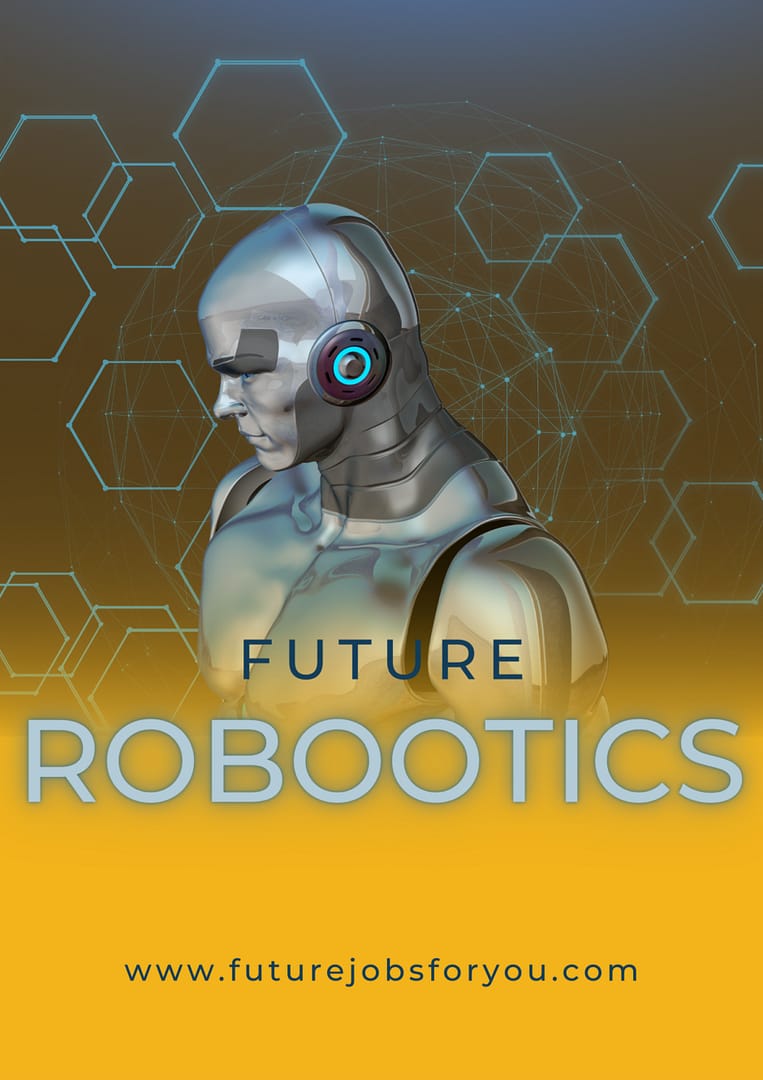Will robotics replace human employment?
Automation has been around for a long time, so it can be easy to assume that the roles it plays in our lives have been fully explored. But as technology continues to improve and spread, we are seeing more and more instances of automation being implemented in ways that might not have been possible before.
As this article from The Wall Street Journal points out, businesses adopting automation will affect jobs in several ways: as a way to save on labor costs, as a way to make more overall products (i.e., increased productivity), and indirectly as companies are forced to hire new workers because of a changing economy (and the resulting unemployment caused by automation).
With companies using automated systems at an increasing rate while simultaneously experiencing economic growth, it is essential to ask the question of whether or not these two things can coexist. In other words: Can we automate our economy while still employing human workers?

Is it a universal basic income in our future?
It’s hard to describe universal basic income (UBI). It’s a form of welfare, but with no strings attached. UBI is a regular cash payment to all citizens, which has become much more plausible due to all the technological advances in the past few decades.
What does that mean for our work effort? Will people continue working, or will they be happy living off their basic income checks? If they continue working, what will they do differently because they don’t need the extra money? Will people use it as an incentive to start their own businesses and reach their entrepreneurial goals faster?
This isn’t just an idea—it’s an ongoing experiment right now. In Finland and Kenya, trials are being done to see what kinds of effects UBI has on its participants. The results of this experiment could lead us into a new era where robots can replace human employment, and we’re able to accept it without massive social upheaval.
Will we still have jobs in the future?
In the past, jobs were created because someone built a machine and made other people do things. The same will be confirmed in the future, even if we don’t want it to be. Many occupations will disappear as machines can do everything better than humans at similar pay and cost.
But others will be created as machines are designed to perform activities that no one would have thought of before, like ideas that come out of people’s heads or meetings with potential customers—meetings where a computer is better suited to the task than a human representative.
What is the effect of automation?
Automation is here, and it’s transforming the world of work. With everything from driverless cars to automated solutions for data entry, robots are beginning to take over jobs traditionally held by humans. Some experts think that more than half of today’s occupations could be automated with current technology.
Of course, this shift poses many questions about what the future will look like, but one thing is clear: we need to start preparing ourselves for the new normal if we want to thrive in tomorrow’s job market.
Luckily, education doesn’t need to be expensive or inaccessible. Even though some people may see higher education as an unnecessary or risky investment, there are plenty of free resources available online as well as opportunities to learn in person. Even better The skills you’ll pick up during your self-education can be used in all sorts of ways, whether it’s helping improve your resume or getting you ready for a career change.
With so many solutions at our fingertips and so much potential on the table, now is a great time to jump into learning about how technology will shape our future!
How do competitive markets lead to more productivity?
In competitive markets, all firms have a choice as to how they use their resources. They can either invest in new technology that makes workers more productive or do nothing and is left behind. The competition forces firms to make the correct decision, which is to invest in technology that increases their productivity.
If a firm does not do this, it will either go out of business or merge with another firm; both of these outcomes are better for society than if the firm had chosen to forgo technological upgrades. Society benefits from more innovation because human resources freed up by eliminating jobs can now be used to develop more technology that creates additional jobs elsewhere in the market (i.e., automation leads to new jobs).
This cycle also leads firms to innovate because if they fail to stay on top of technological change, they will quickly fall behind due to competition from other firms that have adopted newer technologies and found ways to reduce costs while improving quality (i.e., automation leads to improvement on multiple fronts).
When we think about why certain products are cheaper than others or why specific industries are expanding at different rates, it’s essential not just to look at the raw numbers but also to consider why those trends might be happening—investigating what drives competition is critical for understanding how those results occur and whether those results are good for society overall.
It's time to start thinking about what happens next.
I’ve been a skeptic for most of my life, and even though I’m now older than that, you can see the skepticism in my eyes as I write this. The question “Will robotics replace human employment?” has some people frightened. Some believe that the answer is yes (robots will replace all our jobs); others don’t believe at all (robots have no role to play in our future).
I know many people with strong opinions on this subject. They are probably right, but I’m going to argue that they’re wrong.
Share:
More Posts

The 8 Learning Events Model Using Robotics
The 8 Learning Events Model Using Robotics Robotics is a rapidly evolving field revolutionizing how we learn and teach. Integrating robotics in education provides students

Top 5 Robotics Technologies in 2023
Top 5 Robotics Technologies in 2023 The world is changing. Robotics Technologies have advanced by leaps and bounds in the past century, and that trend

Neurofeedback for Autism
Neurofeedback for Autism Introduction Neurofeedback is a method of training the brain through biofeedback. It’s effectively treated symptoms of autism and other neurological disorders, including

Can You Control Robot with Your Mind?
Can You Control Robot with Your Mind? https://youtu.be/gKFmTCOqe1U EEG is a brain-computer interface that allows robots to read human thoughts. It’s a noninvasive technology, meaning


